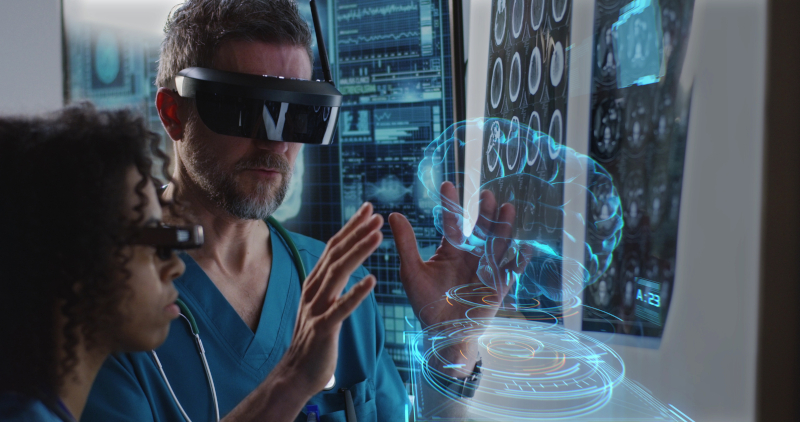Facebook AI accelerates MRI exams
Image reconstruction by artificial intelligence (AI) shortens the time of Magnetic resonance imaging examinations (MRI) significant.
https://healthcare-in-europe.com/
The first clinical study to compare AI-accelerated knee MRI scans with conventional scans shows that the AI scans are not only diagnostically interchangeable with the conventional ones, but also provide higher quality images. The results of this interchangeability study are a key milestone in a joint initiative launched in 2018 by NYU Langone Health of New York City and the Facebook Artificial Intelligence Research (FAIR) group to accelerate the MRI scanning process.
The research was published in the American Journal of Roentgenology.
AI-accelerated log image reconstruction has the ability to generate diagnostic quality images with a fraction of the raw acquisition data compared to conventional techniques. For the interchangeability study, the diagnostic quality of AL-DL reconstructed images was assessed using only 25% of the raw data from 108 MRI knee exams performed on a 3T scanner (Siemens Healthineers) and using conventionally captured and processed images of a standard clinical MR protocol. The images reconstructed with AI were four times faster than before only 25% of the raw data from fully scanned images were used. Six musculoskeletal radiologists rated each image set for the presence of meniscal tears, ligament abnormalities, chondral defects, and subchondral bone marrow signal abnormalities and rated them on a normality scale of one to four. Radiologists also rated the images for sharpness, subjective signal-to-noise ratio (SNR), presence of artifacts, and general image quality on a four-point scale. They were also asked to identify the 216 exams as conventional exams or as those created using the AI-accelerated protocol.
Accelerated sequence better than clinical sequence
The study showed that the AI accelerated images were diagnostically interchangeable with the conventional images, "writes lead author Michael P. Recht MD, Louis Marx Professor and Chair of Radiology, and his fellow researchers. The results showed that the exchange of the sequences in no more than 4% of the cases resulted in dissenting clinical opinions for each characteristic evaluated. In addition, the accelerated sequence was judged by all six analysts to be of better quality than the clinical sequence. '
The study is important: it paves the way for further exploration of AI image reconstruction models with other types of MRI exams. It also shows that 'fastMRI' produces better quality images than parallel imaging and Compressed Sensing Techniqueswhich can also shorten the scan time. Compressed sensing techniques tend to preserve the SNR better than parallel imaging, but compression algorithms tend to over-simplify the image content, resulting in residual blurring and a loss of realistic image textures.
Staff from the Center for Advanced Imaging Innovation and Research (CAI2R) of the radiology department of the NYU School of Medicine and Facebook AI initiated the joint fastMRI research project with the aim of capturing MRI scans by AI to accelerate up to 10 times. Such a drastic reduction in time could make MRI more practical for emergency patients, claustrophobics, or patients who cannot hold still or hold their breath, as well as for children. The throughput of MRI suites could be increased significantly.